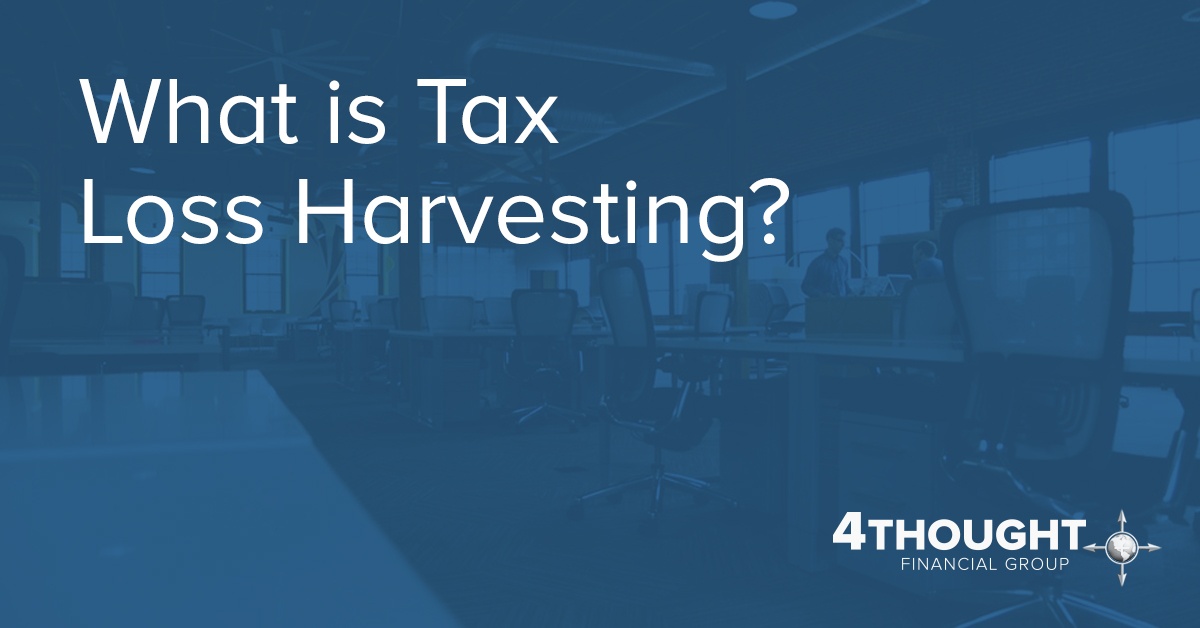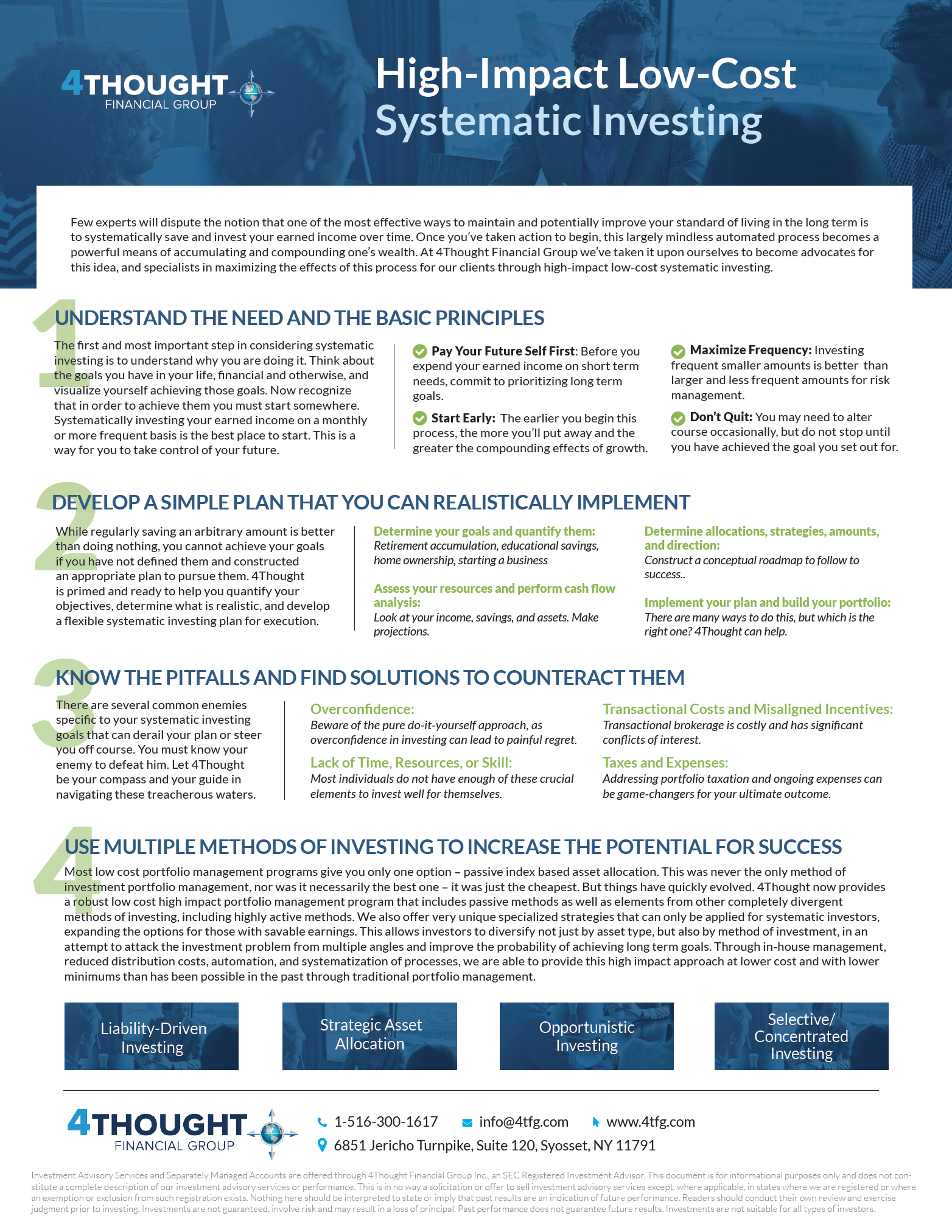

Systematic Investing with 4Thought Financial Group
"One of the most effective ways to maintain and potentially improve your standard of living in the long term is to systematically save and invest your earned income over time."
Tax loss harvesting is the act of selling securities to offset paying taxes on capital gains for a set year. The loss selling method gets done as a way to reduce tax liabilities in a high-income year. The extra money can then go into investing, and the long term compounding effects of the additional assets can be significant.
How Tax Loss Harvesting Works
You can bring down the amount of taxes you owe if you have capital losses to claim. The single most effective way to do this is by selling an investment asset at a loss. While it seems senseless, this method does work, as you are deferring your overall portfolio gains until a later sale date while selling an investment at a loss now.
That would be a powerful way to handle your taxes. It gives you the chance to offset any capital gains if the losses are incurred in the same year. There are many cases where you might want to do this, such as if you recently sold an investment asset at a big profit. In addition you legally have the power to claim up to $3,000 in tax offsets on your income in each tax year, even using carryforwards from previous years’ losses.
The Benefits of Tax Loss Harvesting
Tax loss harvesting does many things to improve your personal finances. It is surely a situation-based scenario, which is why hiring a financial advisor is a good idea. With professional help, you will be able to harvest the maximum savings possible each tax year.
Take a look at some of the many benefits of tax loss harvesting.
- Have a good year trading stocks? By offsetting your gains for now, it is less difficult to stomach a downturn in the markets later.
- Need to drop tax brackets? With the ability to offset their personal income by $3,000, some Americans can reach a lower tax bracket via tax loss harvesting.
- Holding multiple investments? You only need to pay taxes on capital gains when you close a trade. Do this within the tax loss selling deadline to qualify for the offset for that particular tax year -- but keep your other investments afloat.
Tax Loss Harvesting Problems
The biggest issue is that by tax loss harvesting, you may be missing time in the market. You cannot repurchase the same investment asset within 30 days of your tax loss sell-off. That means the market can shift and price you out from re-entry in the meantime.
To avoid this problem, there are other options available, such as buying into stocks or ETFs right away that give you a similar overall market exposure. In most cases, you will avoid the "wash sale rule" as long as you don't purchase the same asset right after. The waiting period is 30 days from when you first buy in and then another 31 days for the wash rule to commence.
That can get a bit difficult to understand since the wash rule is not black and white. You need to be careful to avoid buying into a different fund that tracks the same index. Remember, the IRS prefers you do not harvest taxes to try to make taxes lower.
Do You Need Tax Loss Harvesting?
Tax loss harvesting is a profitable strategy, especially for anyone looking to rebalance their investment portfolio anyway or offset a year with taxes owed.
But tax loss selling can be disastrous to attempt on your own. This is one reason why hiring a tax professional and an investment professional with related experience is a fantastic idea. In fact, many of the following people may benefit from tax loss harvesting:
- Those who have recently sold an investment asset at a significant capital gain
- Those trying to lower their taxable liabilities for the year (and future years)
- Those hoping to pay less in capital gains due to the sale of real estate asset
The biggest dilemma comes when trying to purchase a similar stock or index fund. Most investments will not qualify, plus there has to be a noticeable difference between the security sold and the new one purchased. The idea that you are "saving" also goes out the window if you fail to sell your investment by the cutoff date.
Conclusion
Tax loss sell-offs are legal and serve a real purpose. While it is legal and safe to do so, there is no doubt you should strive to save as much as you can. The amount you can save tops at $3,000 in ordinary personal income per year, but the capital losses you realize offset any realized capital gains for the year, which can be powerful. You can always start deferring your losses when you see the time is right.
This sounds easier than it is, and because of the complexities behind the wash rule, you are best off hiring a professional financial advisor. Contact us today to discuss your tax sell-off plans and we'll explain how we can help you with tax loss harvesting.
This material is for informational purposes only. Neither APFS nor its Representatives provide tax, legal or accounting advice. Please consult your own tax, legal or accounting professional before making any decisions.






Leave a Comment